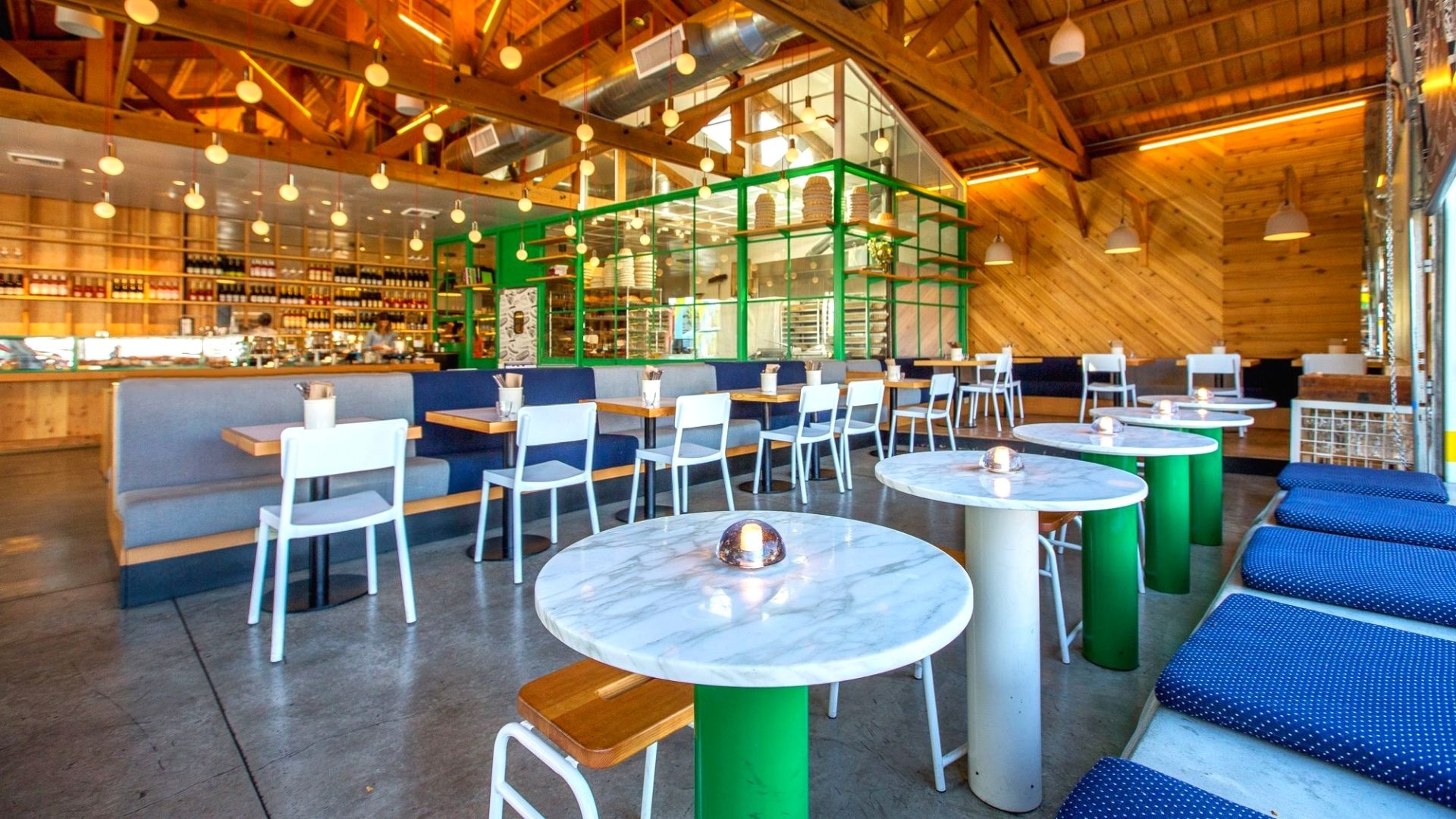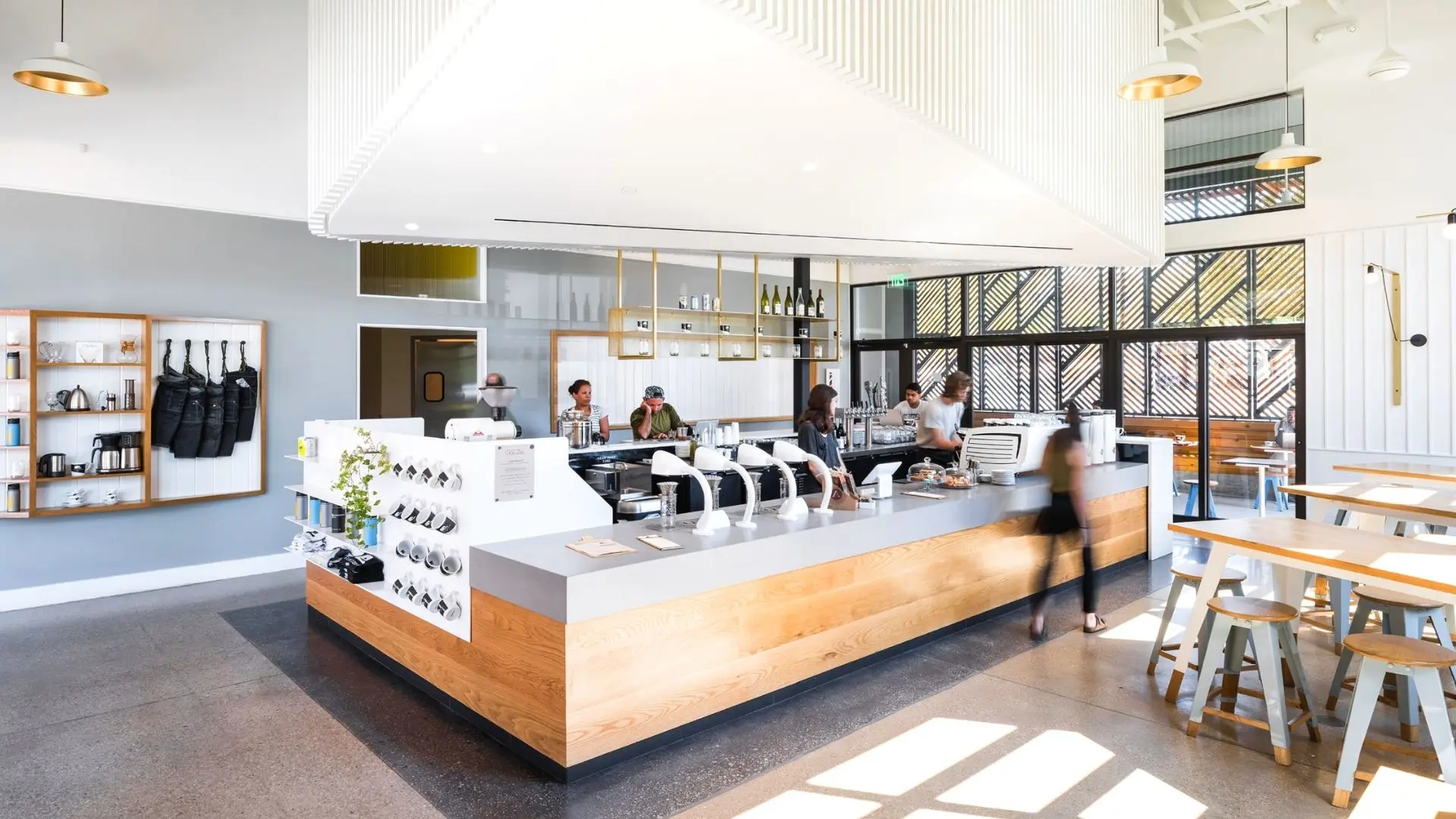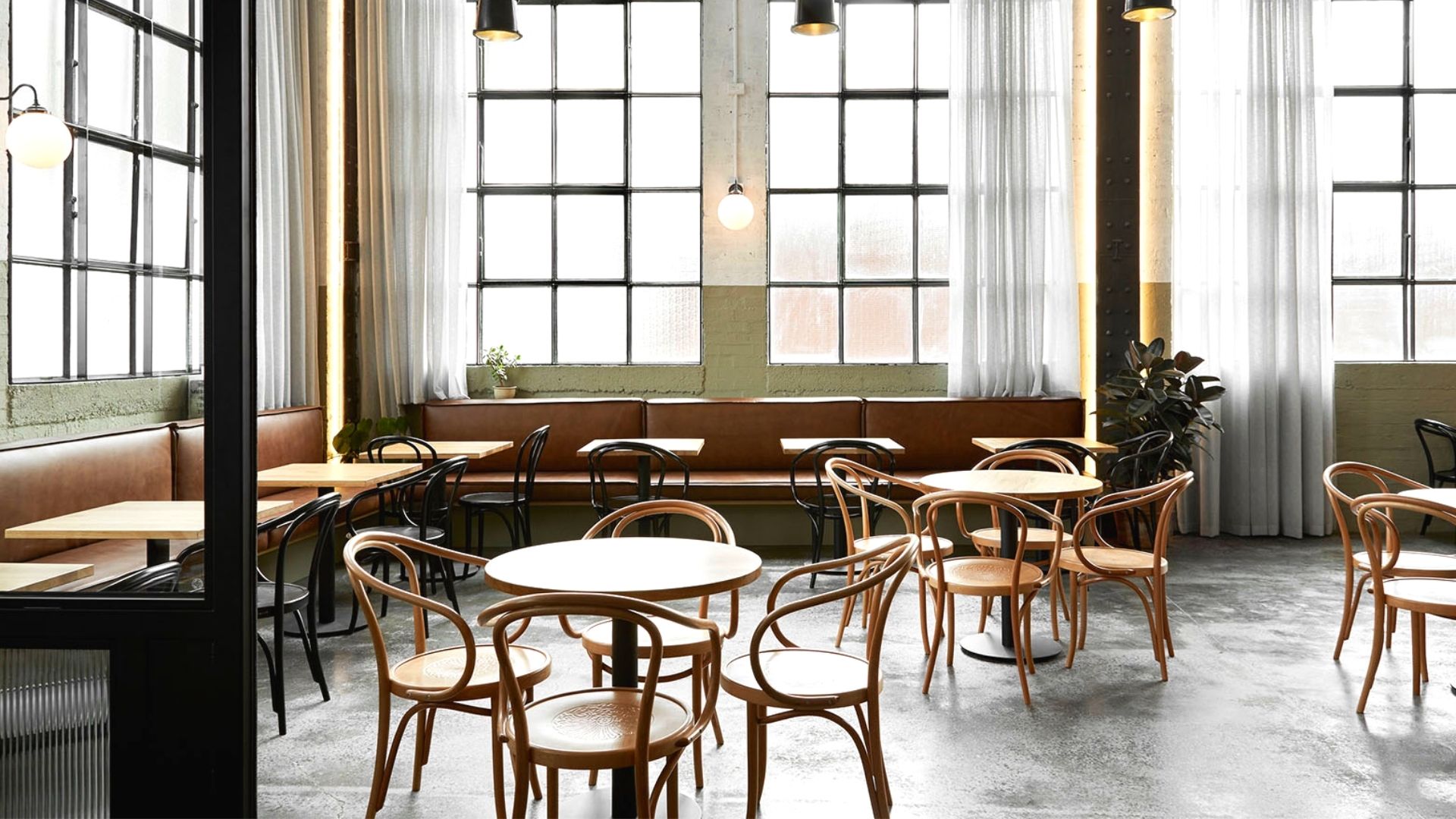Commercial Kitchen Flooring: 5 Ideas For Your Restaurant

Does the old kitchen floor of your restaurant need revamping?
The choice of flooring material for your commercial-grade kitchen is critical to the safety and comfort of your kitchen. Therefore, do you need some pointers regarding the same?
Do read our guide then!
What Is Commercial Flooring?
A commercial-grade floor is laid using tough materials that are strong enough to withstand stains, scratches, heavy items, and foot traffic. Unlike residential flooring, this type isn’t prone to chipping off or damaging over a short period.
Factors To Consider While Selecting Commercial Flooring
There are a few factors that you should weigh before selecting a flooring idea for your commercial kitchen, and they are:

1. Slip Resistance
The chances of slips and injuries are pretty high in a fast-paced kitchen. You need to install a skid-free floor so your employees can move around without the risk of falling. Some options that provide the best traction are epoxy, concrete, and rubber mats.
2. Maintenance
Investing in a low-maintenance floor that doesn’t need frequent cleaning is a great idea. Not only will it ease the janitors’ work, but it will also be light on your pockets, as you won’t have to buy expensive cleaners and chemicals.
Plus, it’ll save a lot of time because easy-to-maintain flooring options like epoxy and vinyl can be mopped in a jiffy.
3. Hygiene
Because kitchens contain many food items, they can be hubs of bacteria growth due to the amount of food they hold. In this case, you should install a non-porous flooring surface that won’t accumulate grime or lead to mould and mildew growth.
Flooring Ideas For Your Restaurant
Having discussed all the requirements and other details, let’s look at some innovative restaurant floor ideas.

1. Tile Flooring
Durable and classic, tile has been the go-to kitchen flooring choice for restaurant owners, and rightly so. It can handle heavy foot traffic and doesn’t need much maintenance apart from occasional mopping.
Advantages
- It keeps the air in the kitchen safe and healthy, owing to its low VOC construction.
- Naturally disguises dust; the floor appears to be clean most of the time
- It is durable and ages beautifully after ten to fifteen years
Disadvantages
- It causes discomfort if you stand on it for a long duration
2. Epoxy Flooring
Epoxy coating is an excellent option to upscale your regular concrete flooring. Its chemical-resistant, skid-free surface is perfect for withstanding high foot traffic and hustle-bustle. The non-porous construction also makes cleaning cooking stains and spillages a breeze.
Advantages
- Quick to install and won’t interrupt your business for long.
- It can quickly be taken up as a DIY project.
- It has a resin-like topcoat that resists oil, greases, and stains exceptionally well
Disadvantages
- Can emit strong fumes during installation
3. Vinyl Flooring
Luxury Vinyl Tile, or LVT, is the best type of vinyl flooring with an outerwear layer. This layer provides durability, heat resistance, and protection from stains. Moreover, it offers impressive design versatility to maintain an aesthetic setting in your restaurant kitchen and inspire the staff.
Advantages
- A slip-resistant safety flooring option that can be treated for microbial control
- Adapts to the subfloor properties, providing unparalleled comfort if installed over a plush material
- Minimal maintenance; it just needs to be cleaned with a wet mop and mild cleaning agents
Disadvantages
- Expensive to install
4. Polished Concrete Flooring
Our next suggestion is polished concrete flooring, which is hard, seamless, and can last for years. It cannot be damaged due to heat, shocks or heavy impacts and is the perfect option to sustain heavy machinery and kitchen equipment.
Advantages
- Long-lasting and sturdy, built to withstand heavy equipment
- Water, cooking stains, and fire-resistant
- Low maintenance and maintains good air quality in the kitchen
Disadvantages
- Has a porous surface — can collect grime and bacteria
5. Rubber Mats
A rubber mat isn’t the primary flooring material, but you can use it above several other options in areas prone to water exposure. It works wonders around washbasins and workstations, providing extra cushioning to alleviate pressure from your spine and hip girdle.
Advantages
- It contains drain holes that allow water and oil to flow effectively
- Easy to clean, dirt or food particles can be swept right over
- Portable and lightweight — can be stored when not in use
Disadvantages
- It doesn’t provide full floor coverage
Selecting The Perfect Commercial Kitchen Flooring
We’ve reached the end of our guide on the best restaurant flooring ideas.
Durability, maintenance and hygiene are the essential factors you should note while choosing a flooring option. And don’t forget to consider the installation cost and duration to make the best decision.
Are you ready to install new flooring in your commercial kitchen? Speak to the team at Top Coat Concrete! Our Sydney concrete finishing specialists have years of experience installing, repairing and maintaining all types of commercial flooring. Ask us today for a free estimate.
We’ll see you next time!
Newsletter
Sign up to our flooring, epoxy and concrete blog newsletter and get all the latest news, tips and tricks from the industries best in Sydney.
Related Articles

The Most Durable Commercial Kitchen Flooring Option
Are you looking for a new flooring option for your commercial kitchen? Discover the top 5 choices for flooring for commercial kitchens by reading our informative guide.

Amazing Benefits Of Epoxy Flooring For Commercial Kitchens
Wondering if epoxy flooring is the best choice for your commercial kitchen or not? Then check out our guide to know the perks of installing one in your space.

Understanding The Pros And Cons Of Epoxy Floors
Planning to install an epoxy floor in your house or commercial space? Before you start, here’s everything you need to know about the pros and cons of having an epoxy floor.